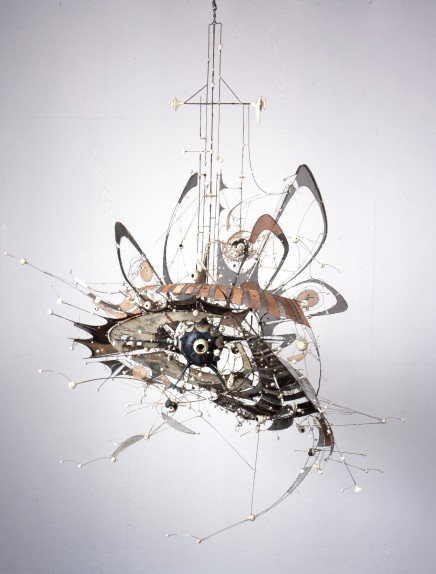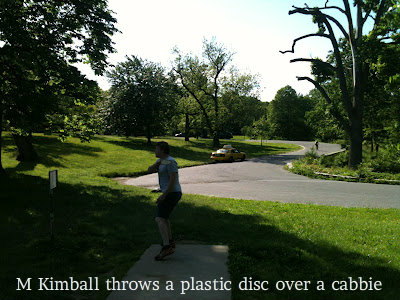“What does “Sincerely” mean, I wonder? Can a Conceptual Author be sincere?”
Fascinating, puzzling, provocative exchange between Kent Johnson and Craig Dworkin in the newest issue of Claudius App adds a very interesting spin to the current conversation surrounding sincerity. Here is the encounter between them (maybe? or maybe it’s all just a hoax?).
After considering the Johnson/Dworkin letters, be sure to check out the whole issue, it’s got a bunch of killer stuff in it by Joyelle McSweeney, Ariana Reines, Brandon Downing & Daniel Tiffany, and loads more.
DeAtHbOoK rEvIeWs: Reviews of Books with Death in the Title that We’ve Never Read
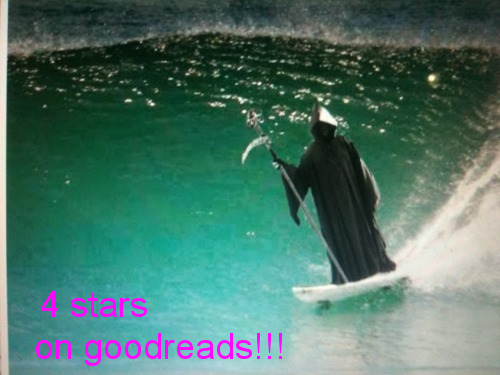
The following are REVIEWS OF BOOKS WITH DEATH IN THE TITLE THAT WE’VE NEVER READ. We’ve done our best to highlight some of the best classic and contemporary books with death in the title that we’ve never read for your very own reading pleasure. Please enjoy (while you still can)!
THE DEATH OF PRINGLE by Justin Katko
The Death of Pringle is a journey through the infinitely depressing matrix of trying to eat less than 10 grams of carbs a day for the rest of your fucking life.
DEATH IN A BOX by Alta Ilfland
Who hasn’t dreamt, on a mundane Monday or frowzy Friday, of starting a tumblr? Tumblrs entice, but is it really all a golden road to viral? Alta Ilfland answers that question with wit, warmth and wicked candor in the chronicle of her own foray into tumblr. Beginning, appropriately enough, on New Year’s Day with a divine idea, Ilfland sets the scene and pits her poetic sensibilities against tumblr. “I had talked about it / during the long gray winters / and the damp green summers…” she writes, “looked / with an addict’s longing / at film stills, dreamed / of waking up in the middle of the night / to reblog.” Indeed, not 10 pages into the book, reality comes crashing into conflict when no one follows her. In verse that skips along lightly, Ilfland records the highlights of each month, from no followers in February to one follower in March to the loss of that follower at Christmas—all the while trading her irl existence for the glow of the screen.
Daniel Bailey on ‘The New Sincerity/Alt-Lit’
For those interested (and for those who haven’t already read it), Daniel Bailey has written a tiny bit of a response to the recent discussion of The New Sincerity/Alt-Lit at his Tumblr thingy. You can read Part 1 and Part 2 if you’d like.
Excerpt below from Part 2:
I think Alt Lit is mostly posturing. It’s attaching one’s self to something larger and riding along. Alt Lit is a great white shark and the myriad Alt Lit writers are remoras along for the ride. The only thing is that Alt Lit is not yet a large great white shark. It’s still small. Aside from Tao Lin, who predates Alt Lit and, imho is not Alt Lit because he has his own vision, and Steve Roggenbuck, no Alt Lit writer has created anything that will last beyond Alt Lit’s moment. The shark is not big enough to carry the weight of so many remoras. Steve Roggenbuck, at this point, IS Alt Lit. All others are simply followers. Steve Roggenbuck is to Alt Lit as Nirvana was to grunge.
My History with The New York Times
 I first remember perceiving the term “The New York Times,” sometime in the mid-nineties, living in Granger, Indiana. My parents, a Jew and a soon-to-be-converted Jew, who had spent their entire lives (thirty-something years) on the East Coast, were beginning to feel the cultural ache that came along with Midwestern life. They subscribed to the Sunday edition in order to reconnect with their intellectual elitist roots—a form of journalism invested in the liberal ideology, the arts and sciences of a better tomorrow, which actually did seem possible during the long reign of Clinton’s social wealth. My sister and I bought silly putty and warped the faces of Calvin and Hobbes, of politicians and Paul O’Neill. About a year later my parents cancelled the subscription for reasons I can’t quite recall. Maybe it was because of the money (at that point they didn’t make a lot), maybe it was because they realized they were so isolated, one thousand miles from the local and penetrating stories that carried no immediacy or urgent weight. Or maybe it was because they thought the news was not what it once was. They’ve said this before about 60 Minutes as the past two decades have rolled by, growing more and more nostalgic for something that may never have even been there.
I first remember perceiving the term “The New York Times,” sometime in the mid-nineties, living in Granger, Indiana. My parents, a Jew and a soon-to-be-converted Jew, who had spent their entire lives (thirty-something years) on the East Coast, were beginning to feel the cultural ache that came along with Midwestern life. They subscribed to the Sunday edition in order to reconnect with their intellectual elitist roots—a form of journalism invested in the liberal ideology, the arts and sciences of a better tomorrow, which actually did seem possible during the long reign of Clinton’s social wealth. My sister and I bought silly putty and warped the faces of Calvin and Hobbes, of politicians and Paul O’Neill. About a year later my parents cancelled the subscription for reasons I can’t quite recall. Maybe it was because of the money (at that point they didn’t make a lot), maybe it was because they realized they were so isolated, one thousand miles from the local and penetrating stories that carried no immediacy or urgent weight. Or maybe it was because they thought the news was not what it once was. They’ve said this before about 60 Minutes as the past two decades have rolled by, growing more and more nostalgic for something that may never have even been there.
Summer Reading List
I’ve literally got piles & piles & piles of books in my office.
So maybe my summer reading list is a bit ambitious. But I’m excited and optimistic.
Started my summer off with Man in the Holocene by Max Frisch (Harcourt Brace & Company, 1979) & just beginning Sátántangó by Laszlo Krasznahorkai (New Directions, 2012) which I’m super excited about. And afterwards I’ll have a good excuse to re-watch Béla Tarr’s beautiful film.
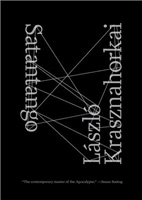
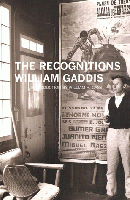
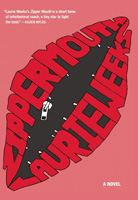
And then:
The Recognitions by William Gass (Dalkey Archive, 2012)
Milkbottle H by Gil Orlovitz (Dell Publishing, 1968)
The Man Without Qualities Vol. 1 & 2 by Robert Musil (Vintage, 1995)
The Conscious Universe: The Scientific Truth of Psychic Phenomena by Dean Radin (HarperOne, 1997)
On the Origin of Stories: Evolution, Cognition, and Fiction by Brian Boyd (Belknap/Harvard University Press, 2009)
Zippermouth by Laurie Weeks (The Feminist Press, 2011)
The Loop by Jacques Roubaud (Dalkey Archive, 2009)
I Hotel by Karen Tei Yamashita (Coffee House Press, 2010)
The Sense of An Ending by Julian Barnes (Knopf, 2011)
Always Coming Home by Ursula K. Le Guin (Bantam Books, 1984)
The Philosophy of Surrealism by Ferdinand Alquie (University of Michigan, 1965)
Habibi by Craig Thomson (Pantheon, 2011)
Occult America: White House Seances, Ouija Circles, Masons and the Secret Mystic History of Our Nation by Mitch Horowitz (Bantam Books, 2009)
Pataphysical Essays by Rene Daumal (Wakefield Press, 2012)
All the Garbage of the World Unite by Kim Hyesoon; trans. Don Mee Choi (Action Books, 2011)
The Shock of the Lenders by Jorge Santiago Perednik; trans. Molly Weigel (Action Books, 2012)
The Number and the Siren: A Decipherment of Mallarme’s Coup De Des by Quentin Meillassoux (Urbanomic/Sequence Press, 2012)
The Sky Conducting by Michael J Seidlinger (Civil Coping Mechanisms, 2012)
You and Three Others Are Approaching a Lake by Anna Moschovakis (Coffee House Press, 2011)
The Listeners by Leni Zumas (Tin House, 2012)
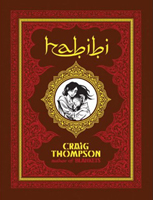

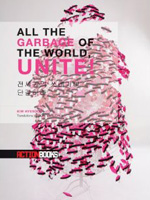
What’s on your summer reading list??
A Few Notes about Joyelle McSweeney’s Percussion Grenade
 The Montevidayans, a loose group of writers and poets and visual artists (including Joyelle McSweeney, Johannes Goransson, Lara Glenum, Danielle Pafunda, and, more loosely, Kate Bernheimer), are distinguished from the preponderance of those who are identified (or who self-identify) as avant-garde or experimental or “new” or otherwise willfully other, by their willingness to embrace and explore rather than to exclude, and by their idea that art can accommodate the high, the low, the middle, the sideways, the backwards, the constructive, the destructive, the deconstructive, the narrative, the anti-narrative, the lyric, the dramatic, the miniature, the epic, the restrained, the willfully artful, the willfully artless, the garish, the respectable, the kitschy, the hybrid, the hi-bred, the high bread, and the red hype. Where others out of explicit big-timing (and implicit self-protection or self-promotion) construct ever smaller boxes within which art might reside — and say, implicitly (and sometimes explicitly): because I reject your standard notion of rules, which are meant to bind and shame me, I will make an idiosyncratic notion of rules, which are meant to bind and shame all who are not like me — the Montevidayans, in general, say: Yes.
The Montevidayans, a loose group of writers and poets and visual artists (including Joyelle McSweeney, Johannes Goransson, Lara Glenum, Danielle Pafunda, and, more loosely, Kate Bernheimer), are distinguished from the preponderance of those who are identified (or who self-identify) as avant-garde or experimental or “new” or otherwise willfully other, by their willingness to embrace and explore rather than to exclude, and by their idea that art can accommodate the high, the low, the middle, the sideways, the backwards, the constructive, the destructive, the deconstructive, the narrative, the anti-narrative, the lyric, the dramatic, the miniature, the epic, the restrained, the willfully artful, the willfully artless, the garish, the respectable, the kitschy, the hybrid, the hi-bred, the high bread, and the red hype. Where others out of explicit big-timing (and implicit self-protection or self-promotion) construct ever smaller boxes within which art might reside — and say, implicitly (and sometimes explicitly): because I reject your standard notion of rules, which are meant to bind and shame me, I will make an idiosyncratic notion of rules, which are meant to bind and shame all who are not like me — the Montevidayans, in general, say: Yes.
This is not the only reason I am drawn to their work READ MORE >
Crystalographers’ Ars Poetica
…the epigraph from the 2nd edition of Christian Bök’s, Crystalography:
june 19
is the 170th day of the year-io and 170 year-ios ago Ambrose Bierce is begetted, a man so like a book, both celebrated and ignored (like a book) and so (like a book) smelling of glue or music or a mattress and heavily into time manipulation, its expansion, compression, irrelevance of, etc. and 170 year-ios ago we get poet Sidney Lanier (go Lanier High, go ‘the castle,” the graduates of said high school, the alumni/alumna officially known not as graduates but as “Poets” [factoid!]; for example, Bart Starr [a man so square as to once fine a Green Bay Packer defensive end $1,000 for munching a fucking hotdog on the bench during an exhibition game] or Zelda Sayre Fitzgerald, a horrible driver [she would tell people that she “deintestined” cars while wrecking them] and great beauty [always a subjective term, though scientific studies have pretty much shown we animals find symmetry aesthetically pleasing {Scientists say that the preference for symmetry is a highly evolved trait seen in many different animals. For both men and women, greater symmetry predicted a larger number of past sex partners.
Female swallows, for example, prefer males with longer and more symmetric tails, while female zebra finches mate with males with symmetrically colored leg bands.}] who, when at high school age in sultry [and fire-ant fucked!] Montgomery, Alabama, was known to be addicted to something called “a dope,” a mixture of Coca Cola spiked with an aromatic mixture of ammonia [oddly, these days the same ingredients can be used in a not dissimilar way to manipulate a whole other type of “coke”], which made her loopy and hungry and eventually a quick trip to Chris’s for a hotdog [legendary hangout of a very drunk Hank Williams], etc.) PIG, n. An animal (Porcus omnivorus) closely allied to the human race by the splendor and vivacity of its appetite. IN’ARDS, n. The stomach, heart, soul and other bowels. INDIGESTION, n. A disease which the patient and his friends frequently mistake for deep religious conviction and concern for the salvation of mankind (all definitions via The Devil’s Dictionary). Burp.
Prose Poetry etc
‘All which is not prose is verse; and all which is not verse is prose.’ (Molliere)
‘The prose poem has the unusual distinction of being regarded with suspicion not only by the usual haters of poetry, but also by many poets themselves.’ (Charles Simic)
‘From the reader’s view, a poem is more demanding than prose.’ (Mark Strand)
‘My own formal literary education has not accorded much regard to what in English are referred to as ‘prose poems,’ and I am not at all sure what the genre is supposed to entail.’ (W.S. Merwin)
‘However, if a poem can be reduced to a prose sentence, there can’t be much to it.’ (James Schuyler)
‘There is a shorter distance from the unconscious to the Prose Poem than from the unconscious to most poems in verse.’ (Michael Benedikt)
‘I wish our clever young poets would remember my homely definitions of prose and poetry; that is, prose=words in their best order; poetry=the best words in the best order.’ (Samuel Taylor Coleridge)
‘A poetry freed from the definition of poetry, and a prose free of the necessities of fiction.’ (Russell Edson)
‘The prose poem is a useless whore.’ (Aoody Wallen)
‘I had long since given up, however, on the notion of reading a long and complex prose poem.’ (Mark Roberts)
‘But I look upon my ultimate form as being a poetic prose. When you read it, it appears to be prose, but within the prose you have embedded the techniques of poetry.’ (Story Musgrave)
‘The prose poem as a lantern, an illuminated container, casting images and phrases needed but barely understood.’ (Martha Kinney)
‘Marriage – a book of which the first chapter is written in poetry and the remaining chapters in prose.’ (Beverly Nichols)
‘I’ve been writing a lot of prose poems. And I probably have a dozen I can live with. Many of them are comic; there are several that are serious. The first one I ever wrote was in Amsterdam. It was a long time ago, I would say thirty years ago. My wife had gone off with a friend, and my kids had gone off to get stoned, and I had time. There was a park named Vondelpark, named after a poet, and I went there. I’m a guy who writes a lot. I enjoy writing; I feel I should be writing, keep my hand in it. So I started writing something, and I wrote a little piece about a Dutch doctor that I knew and loved. And it was the first good prose poem I ever wrote. And then I wrote a couple more, and they weren’t any good (I published them, but they stunk).’ (Philip Levine)
‘It has often been observed that the repercussion of poetic language on prose language can be considered a decisive cut of a whip.’ (Eugenio Montale)
‘When prose gets too stylized and out of control–and Stein is sometimes a good example–when you don’t know what the hell is going on, then it’s kind of boring.’ (Rick Moody)
‘The last few months I’ve been obsessed with taking photographs of miniatures inside of ice cubes.’ (Matthea Harvey)


